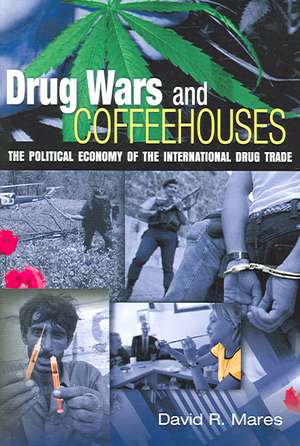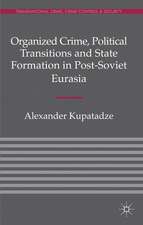Drug Wars and Coffeehouses: The Political Economy of the International Drug Trade
Autor David R. Maresen Limba Engleză Paperback – 15 dec 2005
Preț: 609.80 lei
Preț vechi: 791.95 lei
-23% Nou
116.69€ • 122.14$ • 97.12£
Carte tipărită la comandă
Livrare economică 31 martie-14 aprilie
Specificații
ISBN-10: 1568028628
Pagini: 157
Dimensiuni: 168 x 229 x 12 mm
Greutate: 0.28 kg
Ediția:Revised.
Editura: SAGE Publications
Colecția CQ Press
Locul publicării:Washington DC, United States
Notă biografică
David R. Mares is Professor of Political Science and an adjunct professor at The Graduate School of International Relations/Pacific Studies at the University of California, San Diego. Previously, he has been Professor of the Centro de Estudios Internacionales at El Colegio de Mexico, Fulbright Professor at the Universidad de Chile and Visiting Professor at FLACSO-Ecuador. Professor Mares is the author of three books, Penetrating the International Market (also published in Spanish); Violent Peace: Militarized Interstate Bargaining in Latin America; Coming in From the Cold: Chile-United States Relations at the Millenium (with Francisco Rojas); and editor of Civil-Military Relations: Building Democracy and Regional Security in Latin America, Southern Asia and Central Europe. His publications have appeared in English, Spanish, French and Chinese in journals such as Comparative Politics, International Organization, Latin American Research Review, Foro Internacional, Estudios Internacionales and Fuerzas Armadas y Sociedad and he has served on the editorial board of Latin American Research Review. Professor Mares has been a member of the international advisory boards of the Instituto Latinoamericano de Relaciones Civiles-Militares (based in Peru) and the Center for US-Mexico Studies at UCSD, and prepared reports for the Carnegie Foundation, the Stockholm International Peace Research Institute, the Netherlands Institute of International Relations, as well as the Arias Foundation for Human Progress and Development.









